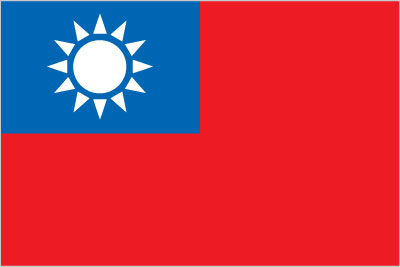Meeting people
A handshake is the common greeting.
Handshakes are not as firm as in many other countries.
Men should wait for a woman to extend her hand.
Many Taiwanese lower their eyes during the greeting as a sign of respect.
Greet or introduce the most important person first.
If you are in a group, try to assemble in rank order, with the most senior person first.
People are usually addressed by their title and surname.
If the person does not have a corporate or government title, use the honorific Mister, Miss, or Madame followed by the surname.
Wait until invited before using someone's first name.
Business cards are exchanged after the initial introductions.
Have one side of your business card translated into Chinese using the traditional script not the simplified script as used in China.
Business cards are exchanged using both hands.
Present your card so the typeface faces the recipient.
Examine a business card carefully before putting it on the table next to you or in a business card case.
Treat business cards with respect. The way you handle someone’s card is indicative of the value you place on the relationship.
Never write on someone's card in their presence.
Communication Style
Taiwanese value a well crafted message. They appreciate sharing a deep and broad contextual understanding in order for the core message to be delivered and understood. That context comes in the form of words, gestures and facial expressions. Brevity is not particularly valued, especially if it sacrifices something in the delivery.
It is important for people from direct cultures (USA, Germany, Scandinavia, etc), where context is not as highly valued and brevity is crucial, to realize that messages might be misconstrued as rude and the information provided might be inadequate because of its lack of context. People from direct communications cultures should take care to patiently listen for the information needed. Furthermore, a tendency to have few gestures may make it more difficult for the message to be understood so be prepared for questions.
Business Meetings
Meeting schedules are not highly structured in Taiwan. There may be an agenda, but it serves as a guideline for the discussion and may act as a springboard to other related business ideas. As relationships are valued, there may be some time in the meeting devoted to non-business discussions. Time is not considered more important than completing a meeting satisfactorily, therefore meetings will continue until the discussion is completed and may extend well past a scheduled end time.
As stated above, people in Taiwan are very indirect in their communication and are as concerned with the effect of their words on others as they are with the content of their communication. They take great care to avoid communicating anything directly that would hurt or offend a colleague as it would cause a loss of "face". They will gently push their ideas forward and wait for others to respond. If they disagree with an idea, they will simply remain silent.
